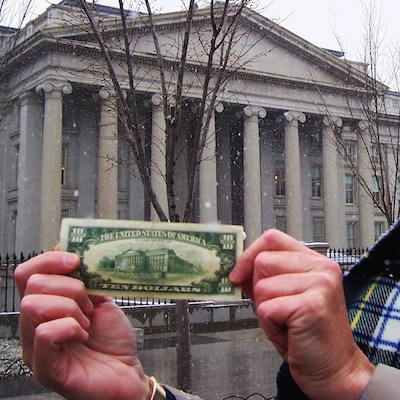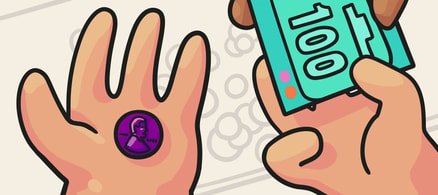Casual dining chains
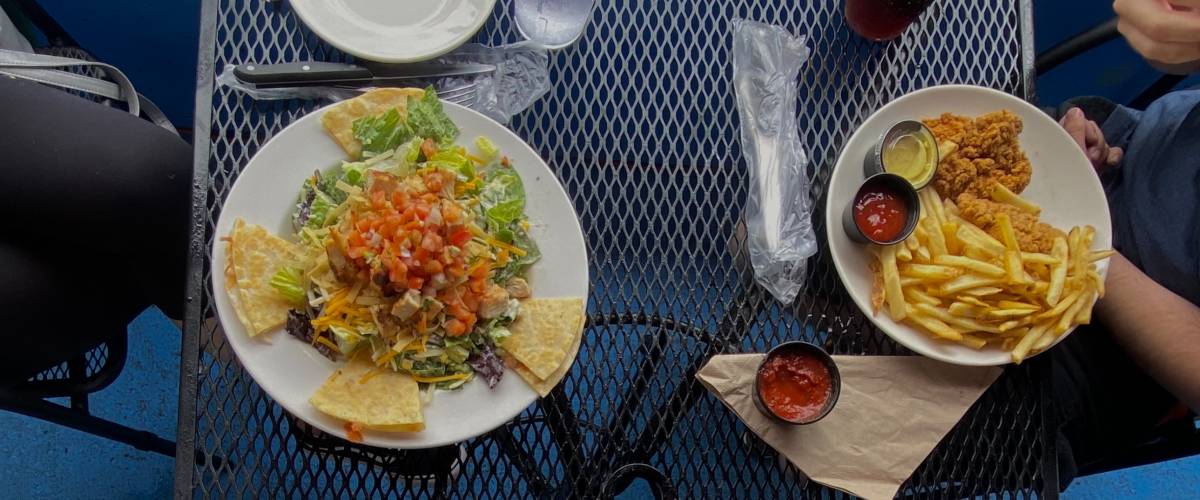
Restaurants like Buffalo Wild Wings and Applebees are far from the go-to for many millennials. It’s not the concept of casual dining in itself, but the chain restaurants that are becoming less popular with younger generations.
Millennials are more likely to hit up a local restaurant, partly due to the range of cuisine options and the other part due to their ideals. Trends like Small Business Saturday, which urged people to spend their money at local businesses, became popular with them after the COVID-19 pandemic took a harsh swing at the restaurant industry.
Food and culture aren’t the only deterrents at work, either — millennials care about ethics more than social media and buying fancy lattes. A business’s practices and conditions factor into where they’ll choose to dine. And often, local spots prove better on this front.
Reddit user MeredithPalmer69 used to work at a chain and shared their experience: “Applebees is killing Applebees … They're one of the most well-known franchises, but most, if not all, of the corporate stooges and managers seem like they've never stepped foot in a kitchen before.”
Meet Your Retirement Goals Effortlessly
The road to retirement may seem long, but with WiserAdvisor, you can find a trusted partner to guide you every step of the way
WiserAdvisor matches you with vetted financial advisors that offer personalized advice to help you to make the right choices, invest wisely, and secure the retirement you've always dreamed of. Start planning early, and get your retirement mapped out today.
Get StartedThe wedding industry
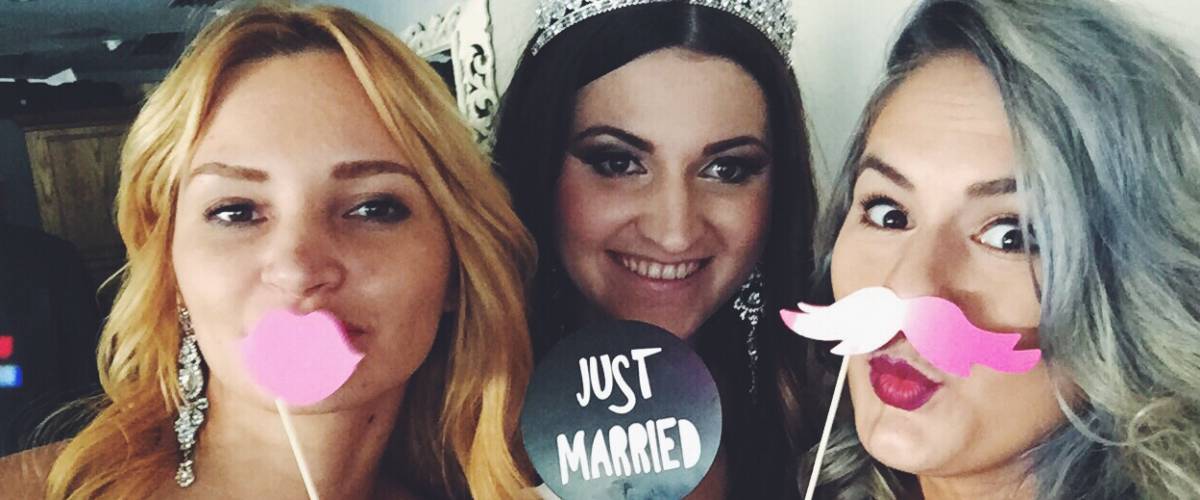
Millennials haven’t totally abandoned the institution of marriage. But they are taking a much different (read: cheaper) approach to their big day.
This means cutting costs on traditional wedding elements like centerpieces, extravagant decor and open bars. At a millennial wedding, you’re likely to see a food truck rather than catering, a ceremony in a backyard instead of a pricey venue and a considerably smaller guest list. If you don’t make the cut when your friends are sending out invitations, consider blaming inflation.
Research by The Knot shows that the average wedding cost in 2020 was $19,000 compared to an average of $28,000 pre-pandemic. Despite this drastic decrease, likely due to health and capacity restrictions, millennials are still opting for a no-frills-attached wedding style.
Reddit user Grimekat shared that their friends whose weddings were postponed due to COVID ended up going for intimate, backyard get-togethers with a few close friends. They decided it’d be more valuable to save their money for a home or their kids’ college funds: “None of us can afford a house, so why would we throw away 30-50K on a wedding?”
Dairy milk
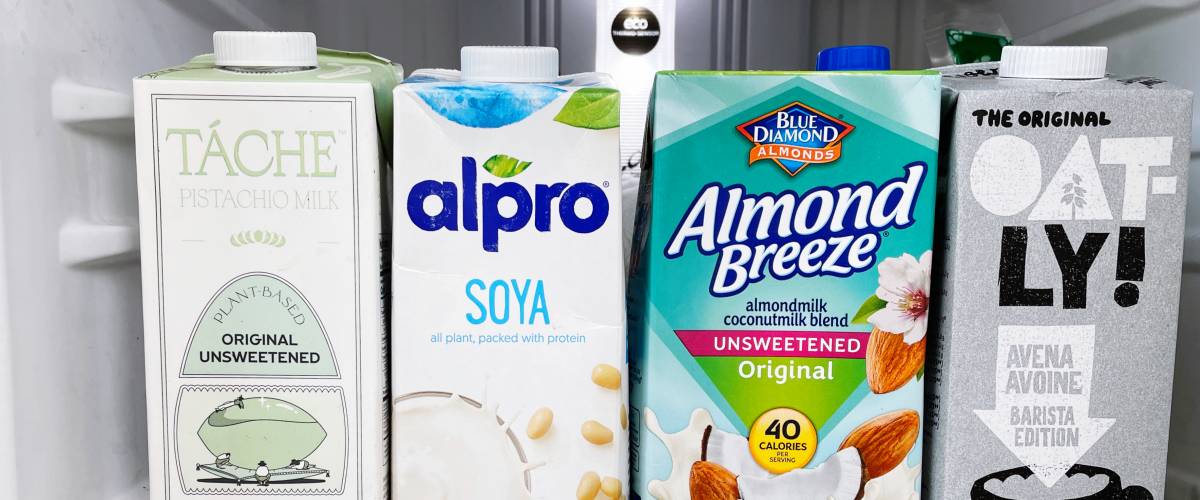
When your barista asks if you want milk in your coffee, what do you ask for?
From oat to almond to soy, there are so many non-dairy milk alternatives on the market right now — and millennials are partly to thank for that.
Due to the rising popularity of vegan or plant-based lifestyles — and, let’s face it, an awareness that you’ve got lactose intolerance — dairy milk is becoming less likely to make it onto grocery lists.
Lots of millennials choose non-dairy milk for environmental reasons. According to a 2020 study by YouGov, one in five millennials have changed their diet to reduce their impact on the planet. Cost effectiveness also plays a factor, considering these alternatives have a longer shelf life than dairy milk.
Sorry to the die-hard dairy drinkers, it seems like oat milk is here to stay.
How to get a free $20 to invest in your future
An app called Acorns automatically rounds up purchases made on your credit or debit card to the nearest dollar and places the excess "change" into a smart investment portfolio. Acorns offers a $20 welcome bonus, immediately from your first investment.
Get $20Diamonds

Diamonds are not a millennial’s best friend. In fact, millennials are in the midst of disrupting the diamond industry by opting for unique gemstones or hand-crafted options when it comes to buying jewelry.
Why, you may ask, are millennials hesitant to spend thousands of dollars on a pretty rock? Well, they are burdened with heaps of student debt and struggle to get high-paying jobs despite their educational background. Twitter user @roborobb puts it simply: “We all work at Verizon and Lids at the mall.”
Disposable income is just not front of mind for this generation. According to The Deloitte Global 2022 Gen Z and Millennial Survey, 29% of millennials don’t feel financially secure. And Bloomberg reported in 2021 that the oldest millennials are only 80% as wealthy as their parents were at the same age.
Living paycheck to paycheck doesn’t leave much room for Cartier.
Cable
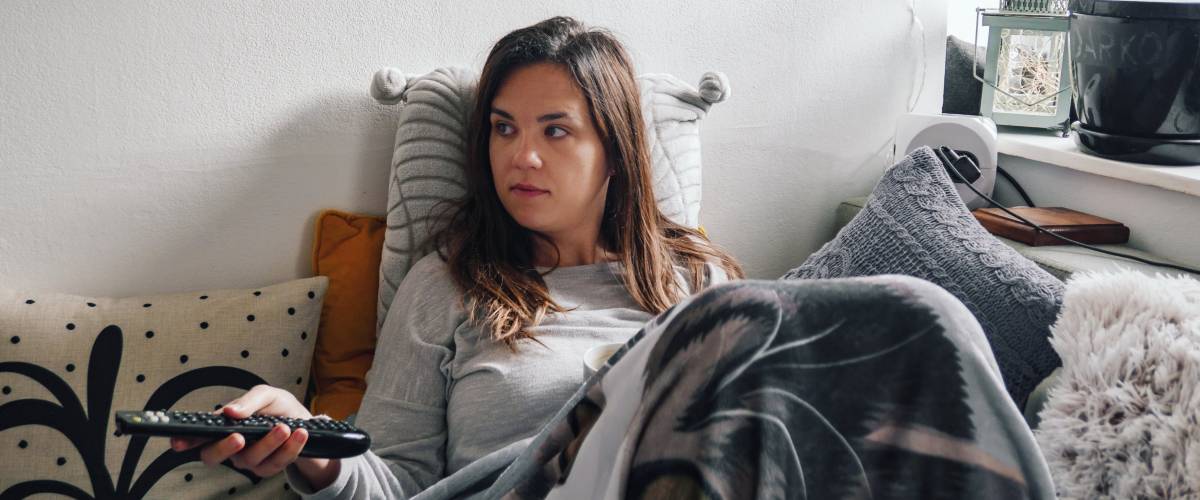
As much as they may crave a 24/7 schedule of The Food Network, millennials are not biting on offers for a TV subscription from the big cable companies.
According to media analytics from Nielsen, Americans have increased their weekly streaming time by 18% from February 2021 to 2022. And interest in cable TV continues to shrink.
According to CableTV.com the average cable subscription in the U.S. costs $79/month. Streaming services such as hulu and Netflix, cost $6.99/month and $9.99/month, respectively.
Perhaps millennials are killing yet another pillar of culture or maybe, as Tumblr user damonwells says, cable is “killing itself by not adapting to the market.”
Streaming options continue to evolve — offering old TV shows, their own original shows releasing episodes weekly and amping up their film catalog — allowing millennials to keep up with everything from Stranger Things to Marriage or Mortgage without even changing the channel.
Wasteful products
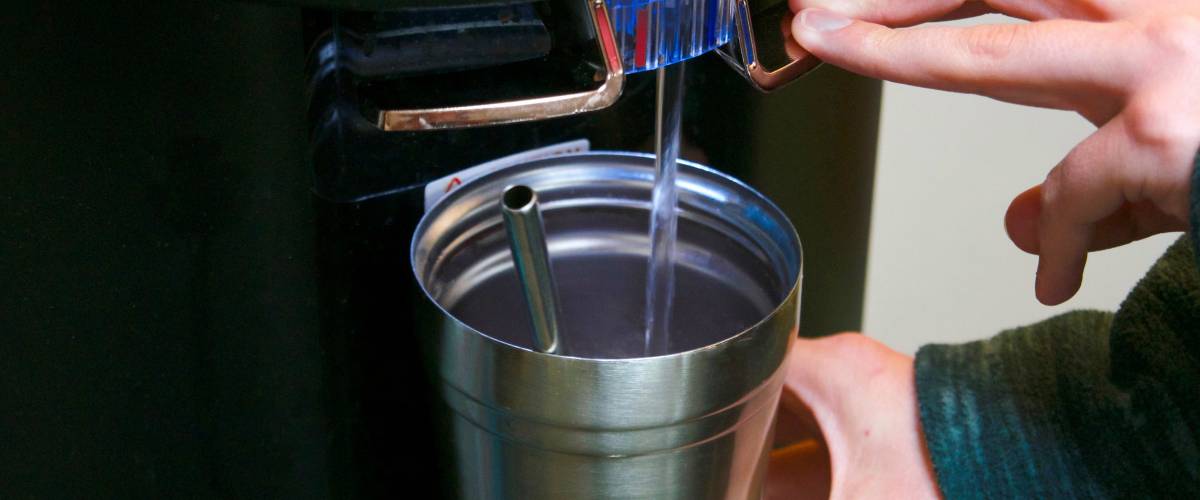
The death of napkins is upon us, along with other disposable products millenials refuse to buy. The Washington Post reported that more millennials are opting to use paper towels instead of napkins to cut costs and reduce waste, as they're a more versatile product.
Single-use items like paper plates, plastic water bottles, straws and shopping bags are also being phased out by this generation. Canvas totes and funky metal straws not only add something cute to your errands and hydration, but they’re also good for reducing your carbon footprint.
The Deloitte Global 2022 Gen Z and Millennial Survey showed that the majority of millennials do not find their government is taking enough climate action and are making a conscious effort to reduce their individual environmental impact.
Despite boomers pointing at their lack of dinner table etiquette, not buying one-and-done products like paper napkins is just one way millennials are fighting climate change.
Beer

Millennials aren’t refusing to buy all beer. But they have developed an affinity for local, artisanal products, and craft beer has seen a spike in recent years. Cheap, mass-market beer doesn’t cut it anymore — millennials favor craft beer’s uniqueness and community component when they crack open a cold one.
NielsenIQ's 2018 study found that half of millennials drank craft beer and only 36% of U.S. consumers overall did. And despite their best efforts, big beer brands are having difficulty catching up to the interests of millennials. MillerCoors put out two light beers aimed at the demographic, but they were pulled from the shelves within six months.
Along with their unique beverages, craft breweries also offer tastings, tours and more, making for some notable social events. It’s hard to compare that to grabbing a six pack at the grocery store.
Houses

OK, millennials may not be refusing to buy houses (contrary to the belief of boomers), but the economy has made it pretty difficult for them to be able to.
Clever Real Estate reported that in comparison to the average boomer in their early 30s (around 1985), millennials at the same age in 2019 faced a 31% higher home-price-to-income ratio. Inflation and housing prices have continued to increase while wages have stayed low.
In response to an article titled “Why millions of millennials aren’t buying homes,” Reddit user NetFear wrote: “I'm not even reading this. I'll just say it — lack of money.”
A 2022 study by Rocket Homes determined that low-credit scores, debt avoidance, high levels of student debt and lack of savings were reported to be top reasons for delaying home ownership.
Even if it is something they want, millennials don’t have the money to buy a house. They just aren’t willing to bury themselves in debt for the sake of a white picket fence.
Redundant technology
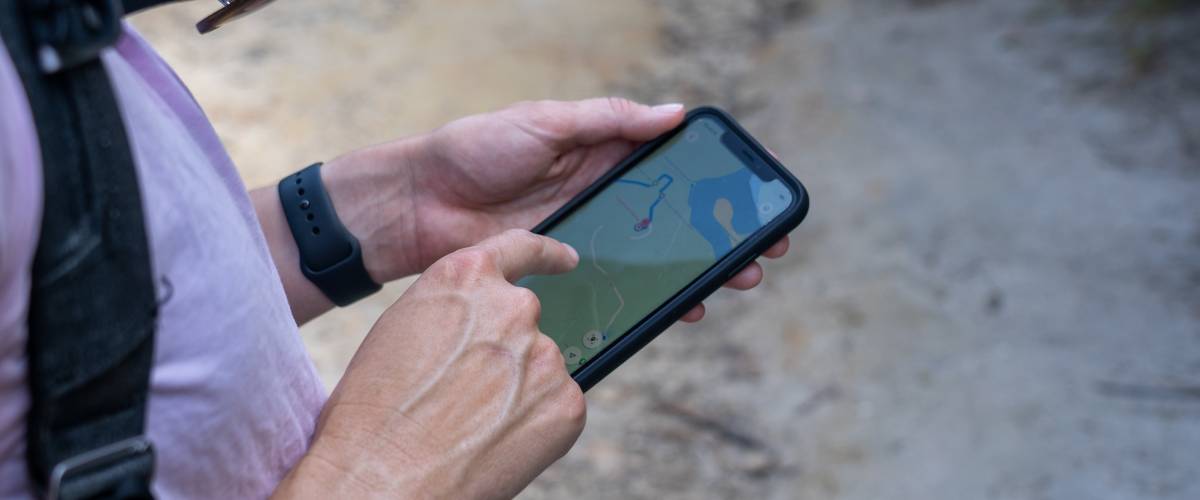
Millennials often get flak for their supposed addiction to smartphones. They’re accused of wasting all their time posting selfies and inane status updates. But these criticisms overlook what young people are really doing on their phones — literally everything.
Of course this generation isn’t buying items like alarm clocks, calculators, landline phones and GPS devices, because they don’t need them. Their phone does it all, making life easier and more accessible.
Even less essential tech like e-readers, digital cameras and music players are unnecessary in light of the many apps and built-in features that exist to serve the same purposes. Millennials are cutting their spending and making best use of the one expensive item they already own.
And sure, boomers might be able to read a map with ease, or know their loved one’s phone numbers by heart. But can they order an Uber, attach a PDF to an email or share a video link without calling for backup from their millennial kids?
Doorbells
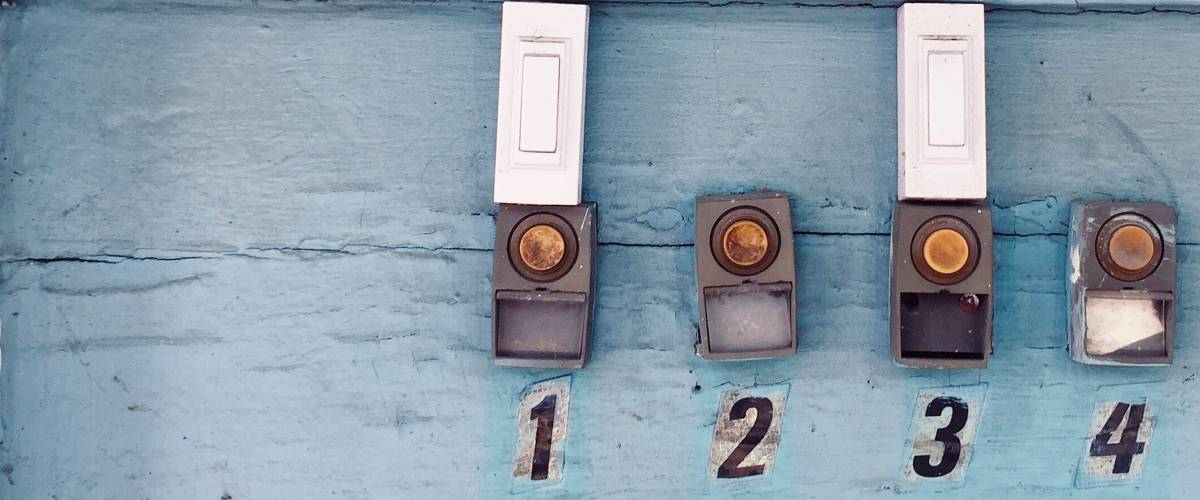
Of all the household standards millennials have killed, their general aversion to doorbells might be one of the few that was actually intentional.
Twitter user pervocracy encompassed millennials' feelings on doorbells succinctly: “Ringing a doorbell is like a voice call at this point; it's either an elderly relative or some kind of scam.”
Millennials have taken to avoiding the ear-piercing, anxiety-inducing ring of a doorbell by texting a simple “here” when they arrive at someone's home. urfeverdream on Twitter shared: “The doorbell legit scares me now. I jump every time. It just seems so aggressive now when you could just text.”
Even many package delivery notifications happen via text or email rather than a delivery person ringing your doorbell.
Millennials could definitely be onto something here — cutting this unnecessary feature might help fewer people fall victim to scams and keep your nosy neighbors away.
Grooming supplies
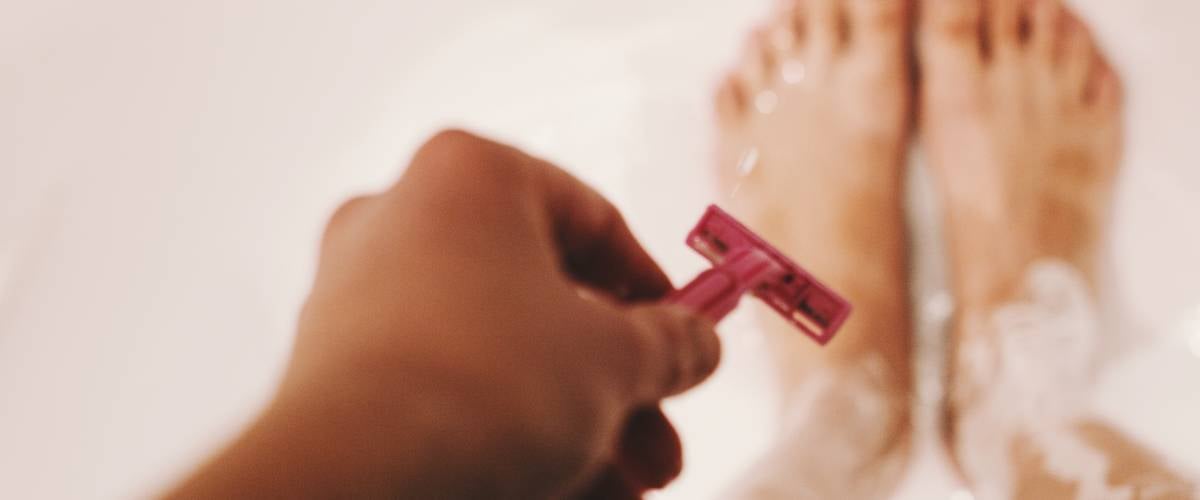
At the risk of sounding unhygienic, millennials are not into buying certain personal care products. It’s not that personal care doesn’t matter to millennials, but they are taking a different approach, which can be chalked up to environmental concerns, changing style trends and even the versatility of other products they already have in their bathroom.
Beards are in fashion, which means razors are purchased less often in general — and disposable razors are just another toss in the pile of environmental waste, which millennials actively strive to avoid. Reddit user Atsetalam shared: “I just use an electric pair of hair clippers (or whatever it's called). It cost about 30 USD and I've been using it for a couple years now. Less wasted plastic too.”
Evolution in feminism and women’s beauty standards also mean a lot of millennial women feel less obgligated to shave than their boomer counterparts.
Bar soap and bubble bath are also on the chopping block. Body wash can play the role of both soap and bubbles, so adding these items to their shopping list seems unnecessary for millennials on a budget.
Postcards and souvenirs

Chances are, if a millennial is on a trip abroad, you’ll know about it. One of the greatest things about social media is being able to share your life with loved ones, near or far.
That’s why you shouldn’t take offense when you don’t receive a postcard from Paris or a kitschy “I Love N.Y.” shirt from your millennial friends and family members when they get home from an adventure.
Millennials are keen on reducing waste and spending money with an ethical conscience. This means a heartfelt text or post with a photo taken on a trip is a lot more likely to reach you than a postcard that will get thrown away in a couple weeks.
The same goes for souvenirs. A piece of junky plastic isn’t worth bringing home. But an artisanal, hand-crafted good that will last a long time definitely is.
Department stores
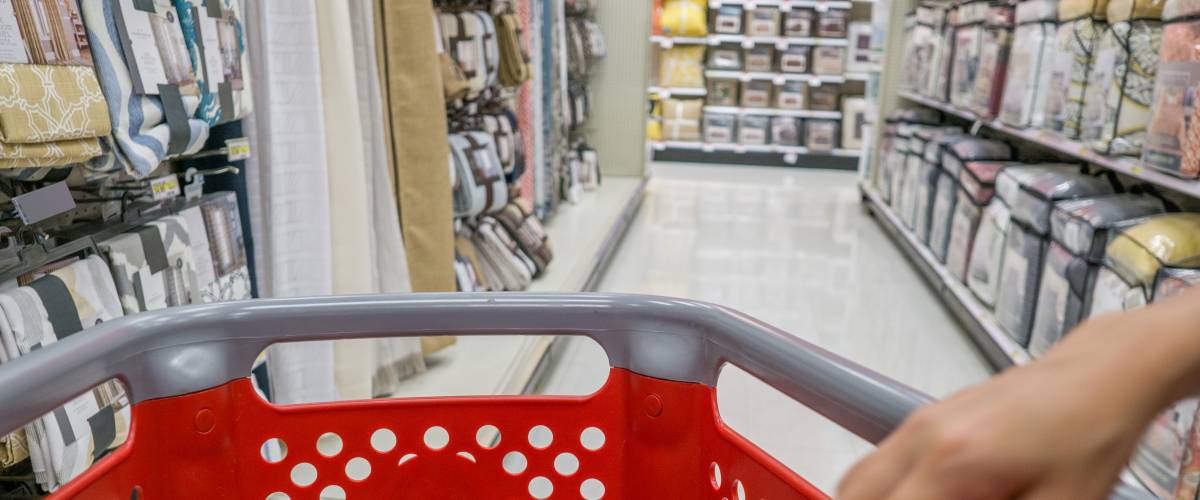
Online shopping has become the go-to method for millennials. According to eMarketer, 20.2% of all American online shoppers in 2020 were aged 25-34.
So many stores now offer their catalog of merchandise on their website, not to mention the many businesses that operate fully online. Online shopping is an accessible, efficient way to make your purchases without leaving the house. This leaves department stores in the dust, and many have completely closed down in recent years.
The COVID-19 pandemic led to its own surge in online shopping. Given the health and safety measures put in place, leaving the house to shop was a risk not worth taking if you could afford it. Plus, it prompted people to broaden their horizons — millennials used this as a chance to shop sustainably, from local brands and small businesses.
There are also sites like Amazon and Wayfair, which offer a vast selection of products at far cheaper prices than department stores. With millennials lacking the disposable income boomers have, this is an ideal alternative.
Cleaning and laundry supplies
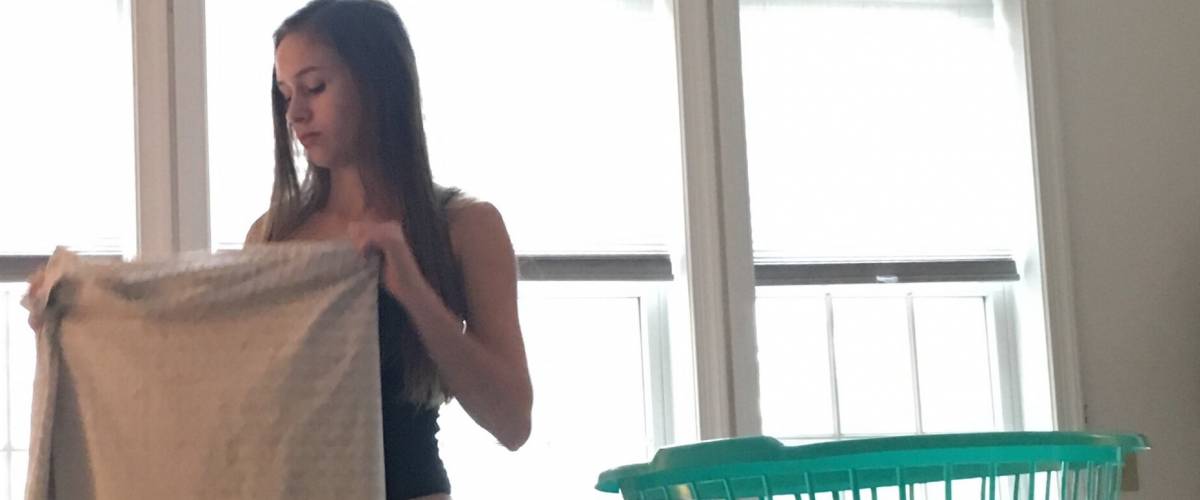
Millennials aren’t listening to their boomer parents when it comes to household chores anymore. Despite what mom and dad might think, they’ve come to determine that fabric softener and dryer sheets are non-essentials on laundry day.
Like many things millennials are cutting from their shopping list, there’s an element of environmental concern with these products. Dryer sheets are used once and then tossed in the trash and many find they leave a residue on fabric that irritates their skin and ruins their clothes. Reusable dryer balls have become a popular alternative.
In terms of cleaning supplies, many millennials are going without or are being frugal by using versatile household products instead. Reddit user Kirkez suggests using white vinegar: "Not only is it cheap but also removes scent, disinfects and most of all is safe for the environment.”
Choosing not to buy these products does not make millennials lazy homemakers. As with most of their choices, it means they’re striving to be eco-friendly and cost-conscious when it comes to essential housework.
Cruises

Rather than sailing away with a bottomless margarita in hand, millennials are looking for more authentic vacation experiences.
They have a strong tendency to engage in the culture of the locale they’re visiting, something cruises don’t typically allow for. This is often a more ethical and cost-friendly way to travel rather than dumping a sum of money on a cushy room, dining plan and open bar — millennials opt for cheap hostels and local cuisine.
As always, environmental concerns are also at the forefront of their minds, and cruises don’t bode well for the eco-conscious. Pacific Standard reported that cruise ships generate around 15 gallons of chemical waste every day, and Carnival’s 2021 Sustainability Report showed that their cruiseline alone emitted 4,440,857 tons of greenhouse gas in 2021.
Perhaps it's time to let this industry sink.
Sponsored
Follow These Steps if you Want to Retire Early
Secure your financial future with a tailored plan to maximize investments, navigate taxes, and retire comfortably.
Zoe Financial is an online platform that can match you with a network of vetted fiduciary advisors who are evaluated based on their credentials, education, experience, and pricing. The best part? - there is no fee to find an advisor.


